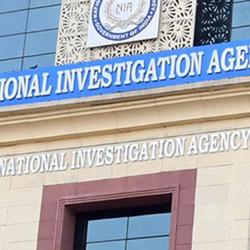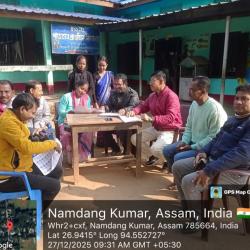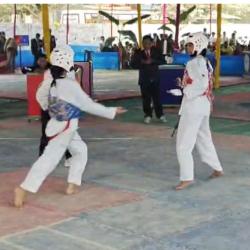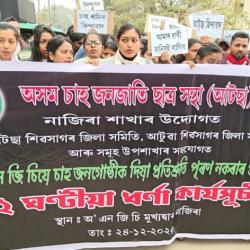India’s ‘Look East Policy’ concern for Burmese
India the largest democracy in the world has always been maintaining good relationship with its neighbors like Bhutan, Nepal, Pakistan, Bangladesh, Sri Lanka and Burma. The efforts are continue for a peaceful co-existence with all its neighboring countries. At a time when this country pleads for democracy in other countries and has welcomed the democratically elected governments in Nepal, Pakistan and Bangladesh, its attitude towards Burma (Now Myanmar) seems a bit different. This shift in its policy took place during the year 1990, when India launched its “Look East Policy” and began to support the military junta in Burma. Since India has embarked upon building a broad based relationship with the military junta including cooperation on defense, trade and investment, energy and natural resources, a series of agreements and Memorandum of Understanding (MoU) have already been signed, such as the construction of Sittwe port, the multi model Kaladan project and Energy and Petroleum Cooperation. India’s closer relationship with Burma’s junta and its cold approach to the people’s movement for human rights and democracy in Burma has raised concern amongst Indian civil society as they question whether India has abandoned the principle of humanist and idealist policy guided by Mahatma Gandhi and Jawahar Lal Nehru. Burma Centre Delhi, an organization formed by members from India and Burma civil society groups is out to work for restoration of peace justice, democracy and human rights in Burma. It still believes India is an important neighbor that can influence Burma in bringing about a democratic transition acceptable to the people of Burma. It may be recalled here that Burma was under British colonial rule for more than one hundred years. Since its independence on January 4, 1948 this country practiced a democratic parliamentary system under the leadership of the premier U Nu. This system continued for fourteen years only, when Burmese army staged a military coup overthrowing the democratically elected government and imposing oppressive military rule. The coup instigators, namely, the Revolutionary Council led by General Ne Win, abolished the constitution and suspended all democratic rights of the people. All legislative, executive and judicial powers were vested in the hands of Gen Ne Win. The military used guns to control the country according to their wishes, keeping a tight lid on the political activities of those who love democracy in the country. The military regime transformed itself into a ruling political party in the year 1974, which was named the Burmese Socialist Program me Party (BSPP). The BSPP ruled over the country for fourteen years until 1988, with single party dominated political system with the ideology ‘the Burmese way to socialism’. During these years the country became one of the poorest countries in the world. Therefore, in 1987 Burma was listed as a least developed country (LDC) by the United Nations. Due to deterioration of Burma’s economic situation and oppressive one political party rule on August 8, 1988, which is known as 8-8-88, the people (workers, monks, peasants, teachers, government servants and youth) of Burma led by the university students at Rangoon rose up as one to call upon the military rulers to abolish the ill-reputed one party system, demanding democracy and human rights in the country. The military responded with bullets against the peaceful demonstrators and killed more than 3,000 demonstrators throughout the country. After 8888 incidents, Gen Saw Maung took over the country on 18th September 1988 and renamed the ruling regime the State Law and Order Restoration Council (SLORC). Therefore in 1989 under the SLORC Burma was renamed as Myanmar to divert international attention and criticism. A multi-party general election was held in May 1990, in which the National League for Democracy (NLD) won a landslide victory. However, the military ignored the election results and did not hand over the people’s mandate to the winning party, instead imposing authoritarian rule and violently cracking down on the people’s pro-democracy movement. In spite of the repressive military rule for about fifty years the people aspiration for peace, dignity and democracy continues till now and Burmese people hope that India can play a better role to bring democracy back in their country.
Other Contents by Author
It is strange in a state like Assam that the government fails to provide full security and safety to the people's life and property and at the same time, it does not allow the citizens to 'purchase' it from other sources. It is alleged by different sections of the people that they are victim of the double standard of the state government. They allege that neither the government provides them security nor it allows them to get from other sources. Although the state government has claimed from time to time having provided full security, the actual position appears too far from such claims. Reports of killing, abduction and different modes of violence are coming out unabated almost every day...
Under the Indian Rhino Vision 2020 (IRV2020) plan about 3,000 wild rhinos are to be translocated in seven protected areas of Assam by the year 2020. This was disclosed to a group of journalists, who visited the Manas National Park on April 12 last, to have a glance of first batch of translocated rhinos from Pabitora Wildlife Sanctuary in Morigaon district, under the scheme. Two rhinos were brought to Manas National Park from the Pabitora on 12th morning. IRV 2020 is an ambitious programme of the Government of Assam in collaboration with World Wildlife Foundation India supported by the International Rhino Foundation and the US Fish and Wildlife Service. Its main objective is to increase the...
Purno Agitok Sangma, a veteran politician, Nationalist Congress Party leader and former Lok Sabha Speaker, who opted for return to the state politics, has a very important and crucial role to play in Meghalaya. With formation of the Meghalaya Progressive Alliance (MPA), which took the rein of state administration on March 19 last, Sangma has the responsibility to head the State Planning Board. The post of the Chairman of the Planning Board is considered to the rank of the Chief Minister.The MPA is an alliance of 31 members, in which the Nationalist Congress Party (NCP) is the largest partner with 14 members. The United Democratic Party (UDP) has 11and the Bharatiya Janata Party (BJP) only...
It was in Meghalaya, a nine days drama in power. The recent Assembly elections did not give a clear mandate to any political party. The Hung House compelled the political rivals to forge alliances, which came into existence in the form of Meghalaya United Alliance (MUA) led by the Congress Party and the Meghalaya Progressive Alliance (MPA), a combination of Nationalist Congress Party (NCP), United Democratic Party (UDP) and others. Both the alliances claimed to form the government and approached the Governor, S.S.Sidhu with their claims. Since the Congress Party was the largest single party with 25 members, it was allowed to form the government and prove the confidence of the House within...
All India Regional Rural Bank Employees Association (AIRRBEA) has opposed the entry of foreign and private banks in rural areas. Criticizing the announcement of Union Finance Minister, P. Chidambaram, in his recent budget speech in the Parliament, the AIRRBEA general secretary Dilip Kumar Mukherjee said that his organization did not agree on minister's proposal as this attempt would 'take away' the basic fabric of the agricultural character of the country and make the entire 'Green field' into 'Gray field'. He was addressing the media persons recently at Guwahati Press Club.The AIRRBEA representing majority of the officers and employees of the country strongly opposed the move of Government...
Army's Red Horn Division organized a public rally on 29 January 2008 at Patharighat in Darrang district, bout 70 kilometers away from the state capital Guwahati, to pay homage to the martyrs, who had laid down their lives in supreme sacrifice while protesting against the brutalities and oppressive rule of the Britishers in January 1894. Major Gen. Gyan Bhushan, AVSM,VSM of Red Horn Division was the chief guest at the function.It may be mentioned here that at Patherighat on 28 January 1894, the farmers of the village protested against unjustified increase in land revenue by the erstwhile British Empire. The farmers belonging to various castes, creed and religion had risen against the British...
Seven years ago from now eight street children were picked up from Guwahati Railway Station by a noble person dedicated to the service of humanity. These children were rehabilitated in a hut in Dhirenpara locality of the city. This rehabilitation centre named 'Snehalaya' (House of affection) became operational on January1, 2001. 'Snehalaya' is an out-reach programme of the Don Bosco Educational Society for rehabilitation of children in need of care and protection. With the motto 'to take them off the street and put them on their feet', Fr Lukose Cheruvalel, SDB, the Founder Director of Snehalaya started living with those children. He was loved by the children by the core of their heart...
Complaints of human rights violation are very common now days. Allegations and counter allegations are pouring almost every day from various corners of the northeastern region. The root cause of such violations is the growing militancy in the area. In order to curb militant activities the security forces have to do combing operations in different part of the region. The militants some how try to establish their hideouts in the interior areas.In order to escape from the clutches of security forces the ultras engage themselves in firing on their targets, the security forces. The security forces, in retaliation, though take every care to protect civilians a few incidents of casualty occur,...
The industrial development in India has been dependent on the political influence and leadership ever since independence. It was because of the fact that no fair policy could be framed for equal development of all the regions of the country simultaneously. That is why some of the areas remained completely neglected and the others developed beyond limit resulting in heavy congestion. Besides, the metropolis and a few big industrial centers where opportunities are ample for industrial growth, there is vast disparity in the growth of industries in various regions. The industrialization of a particular area depends on the degree of political influence it has in its favour. A few industries...
The Central government is giving top priority to the development of the Northeastern region, as this region continues to be backward in comparison to other parts of the country even after sixty years of independence. There are several reasons for its backwardness, prominent among them are lack of perfect leadership and will power to implement the centrally sponsored schemes. The growing unemployment has bred the menace of insurgency in the entire region. Violence continues unabated affecting even the meager developmental activities. Reluctance of skilled workforce and technicians to work under 'security threat' has adversely affected developmental activities.With the primary objective of...










Comments
Pages
Add new comment